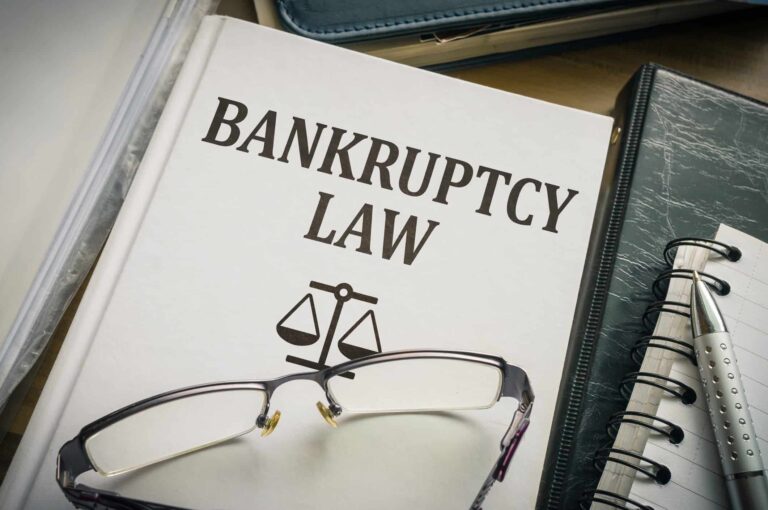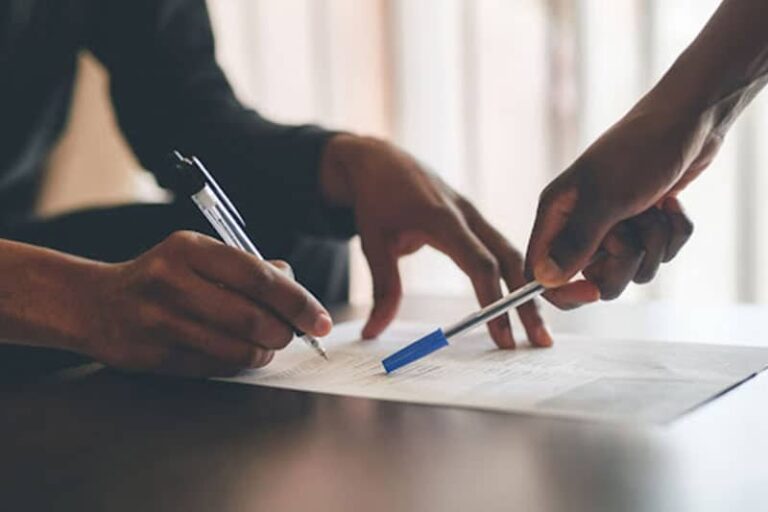10 Signs You Need to File For Bankruptcy
Filing for bankruptcy is no joking matter and is arguably one of the biggest financial decisions you may ever make. While it can alleviate your debt and get creditors off your back, it also deeply impacts your credit for up to a decade. But deciding not to file for bankruptcy can cause more debt to pile up and potentially put you in an even worse financial situation.
Deciding to file for bankruptcy is a complicated decision that you should consider carefully and thoughtfully. Working with an experienced bankruptcy attorney can be one of the best ways to navigate this decision. The legal team at DeLuca and Associates is ready to serve you if you decide to seek legal advice.
As you consider whether or not to move forward with bankruptcy, there are some important factors to consider beforehand. Read on to learn more about the signs you should keep an eye out for regarding whether bankruptcy is the right decision for you.
Your minimum payments are too much to handle
If your monthly minimums on credit cards and loans are proving too much for your income, you are definitely in a severe financial situation that should not be ignored.
According to recent data, the average credit card debt held by Americans is anywhere from $4,285 to $6,617. If you are carrying thousands of dollars in credit card debt, and your minimum payment is in the hundreds, you are not alone. While making minimum payments can help lower your debt, it may cause you to miss out on making payments toward other financial obligations, causing you to fall further behind.
Speaking with an experienced bankruptcy lawyer can help you determine whether moving forward with bankruptcy is the best way to get rid of the exorbitant credit card debt.
You spend more than you earn on a regular basis
Many financial advisors adhere to the 50/30/20 rule. Under this rule, 50% of your income should go toward needs like shelter and food, 30% should go toward wants, and 20% should go toward savings and debt repayment.
If you find that you’re incurring debt every month with no end in sight and cannot adhere to the 50/30/20 rule, this might indicate that your non-existent budget is out of whack.
If you have reduced your expenditures to essentials after making a thorough and honest analysis of your spending habits, you may be a candidate for bankruptcy.
Combined with the above, you are digging deeper into debt every month by not getting a hold of your finances. Debts gain interest, making the amount of money you owe more expensive every day. In the financial industry, this is called “financial suicide.”
In almost every case, bankruptcy can be a viable solution to combating financial suicide.
You skip some bills every month
For many people under insurmountable debt, it can be very difficult to make necessary monthly payments like water, electricity, and rent.
If you have gained control of your spending habits but find that you are consistently unable to make your bill payments every month, you may be a good candidate for bankruptcy.
Having a round-robin approach of making some bill payments in the start column and other bill payments in other months may be a viable solution in the short term. Still, it will only result in further debt and financial struggle. Bankruptcy can help alleviate this by wiping away your debt and allowing you to start on a clean slate.
You are not making enough money
Making enough money is a subjective concept. However, making enough money to survive is not. If you find yourself unable to support a basic lifestyle that includes paying your bills on time and paying for needs like groceries and utility bills, then you are experiencing financial insecurity.
Financial insecurity can be compounded when you have mounting credit card bills and other debt that sucks up your income. This makes it difficult to save up an emergency savings account or allocate money for needed purchases like a home or vehicle. Alleviating this financial obligation to your debt can be remedied through bankruptcy.
While bankruptcy is not an ideal financial avenue people want to go through, it can be a viable option for a successful path forward if you are not making enough money to survive.
You receive constant phone calls from creditors and collection agencies
Most creditors will turn your account over to a collection agency once they determine your delinquency. Having multiple collections agencies contacting you on a regular basis is a sure sign that you are in dire financial straits.
When you work with an experienced bankruptcy lawyer, you’ll have a dedicated professional who will work on your behalf to deal with the collection agencies. In many cases, experienced lawyers will get collection agencies to settle the debt to an amount that is reasonable for you to pay back.
In many cases, being able to establish a credit card settlement plan is a better avenue to go through. A settlement or repayment plan will allow you to get rid of your debt, often at a fraction of what the debt is worth.
You use credit cards to pay for necessities

Credit cards are financial tools that are supposed to help you get ahead in life. A credit card appropriately used allows you to build up your credit score so that you can show lenders your credit trustworthiness. With this trustworthiness, you’re more likely to get a better loan rate when it’s time to borrow money for a home, vehicle, or another big-ticket purchase.
If you find yourself consistently using your credit card for everyday necessities and are not paying off the debt, this may be an indication that you are financially struggling, whether you realize it or not.
The team at DeLuca & Associates can help you navigate your financial circumstances to determine whether bankruptcy is a reasonable solution for your case.
You are dipping into your savings or retirement accounts
Dipping into your savings or retirement account is never an option you want to exercise. To emphasize this, financial institutions penalize individuals who prematurely dip into their savings or retirement accounts.
Not only is relying on your savings or retirement account to make everyday payments on your bills a red flag of your financial instability, but it’s one that will set you up for failure. In some cases, seeking bankruptcy is a better alternative than using funds in your savings or retirement accounts. Bankruptcy will be removed from your credit report after ten years, but it’s more difficult to recover from years of lost savings if you dip into your retirement accounts.
You are selling your belongings to come up with cash
Selling your personal belongings to get money in order to get some extra cash is not an immediate red flag. However, if you’re consistently relying on selling your personal belongings in order to come up with some money to pay off debts, this is an indication that you are experiencing severe financial instability.
In some instances, selling off personal assets like a home and downsizing to a smaller residence can help you circumnavigate bankruptcy. An experienced bankruptcy attorney can help you determine what assets you can sell and what debts you can consolidate in order to pay off obligations and come to a place of financial stability. Read more about selling your personal belongings and filing for bankruptcy here: Can I Sell My Belongings Before Filing For Bankruptcy?”
You have been denied additional credit
It’s common for individuals with lots of debt to seek out other avenues for credit lending. This is often in the form of applying for other credit cards, including retail ones. If you find yourself applying for credit cards often but are consistently denied credit, this is likely due to your heightened liability.
Credit lenders take into consideration your debt, your credit score, and your credit history when determining your credit eligibility. Bankruptcy will have an impact on your credit score and your credit report, but building up your credit trustworthiness after bankruptcy will help you get back on the path of credit trustworthiness.
While bankruptcy will have a negative impact on your credit history in the short run, it is possible to recover from bankruptcy so that you have a good standing with credit in the long run.
You have high-interest rates
Individuals who rely on credit cards to survive often have to deal with high-interest rates when borrowing money. This is because of their poor credit history, infrequent or delayed repayment, and overall management of credit. High credit card interest rates might give you access to credit in the short run, but in the long run, they can prove detrimental to your financial standing.
Contact a bankruptcy attorney for a free consultation to discuss your debt issue

You may be struggling with financial instability if you struggle with making necessary financial payments like your monthly bills and rent. If financial instability is not remedied early on, you can quickly dig yourself into a hole where that debt becomes insurmountable.
If any of these signs are true for you, it may be time to look into hiring a Las Vegas chapter 13 bankruptcy lawyer. Contact DeLuca and Associates today to set up a consultation.
Neidal, C (2017) How Much Money Should I Spend Each Month?
Capital One (2022) What Is the Average Credit Card Debt in America?









